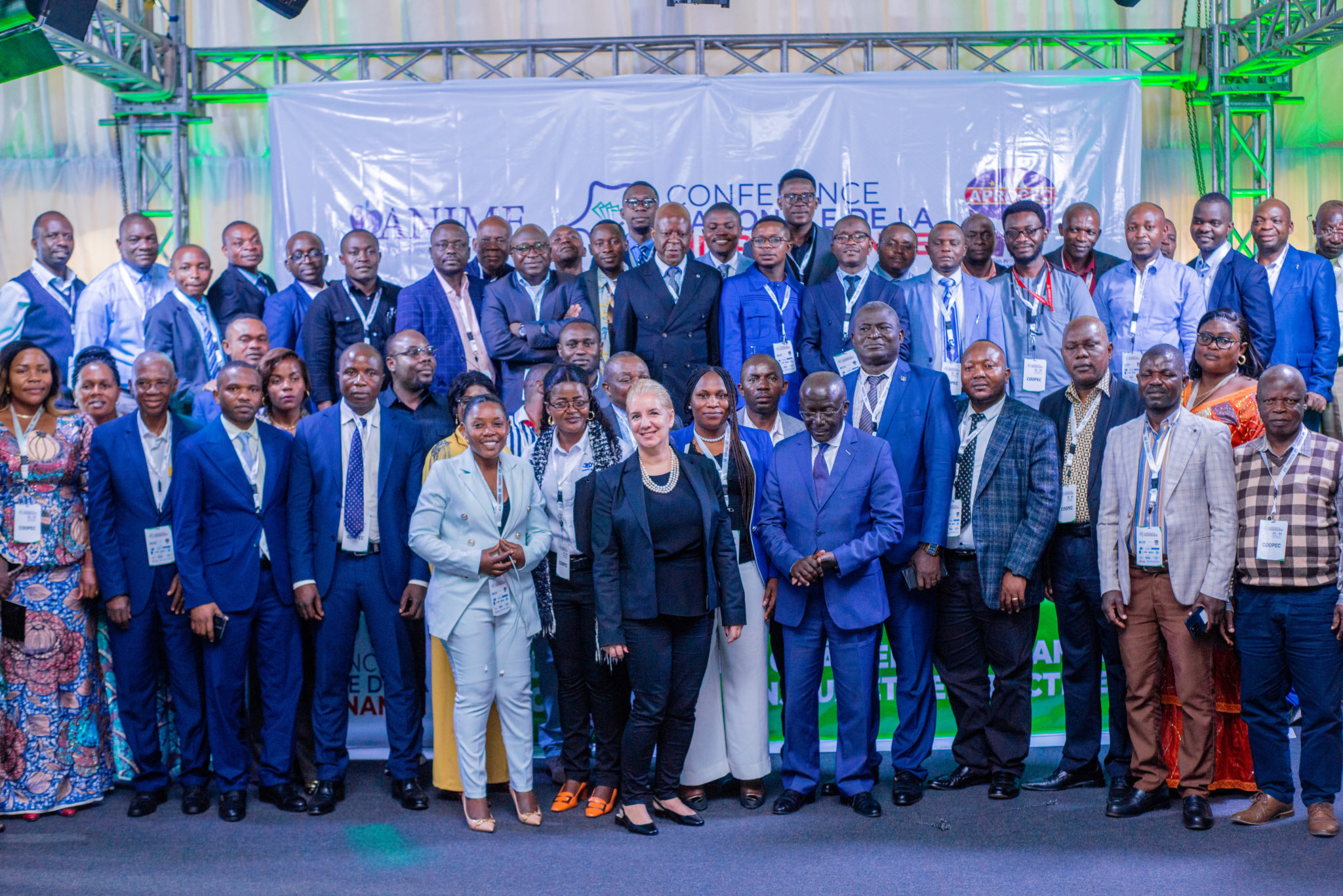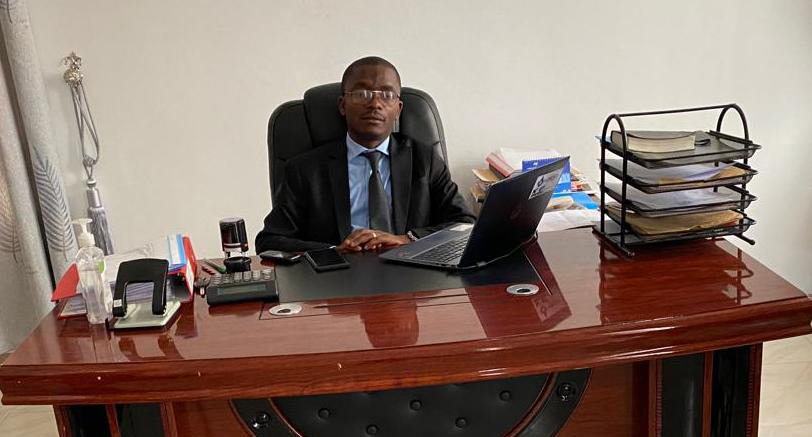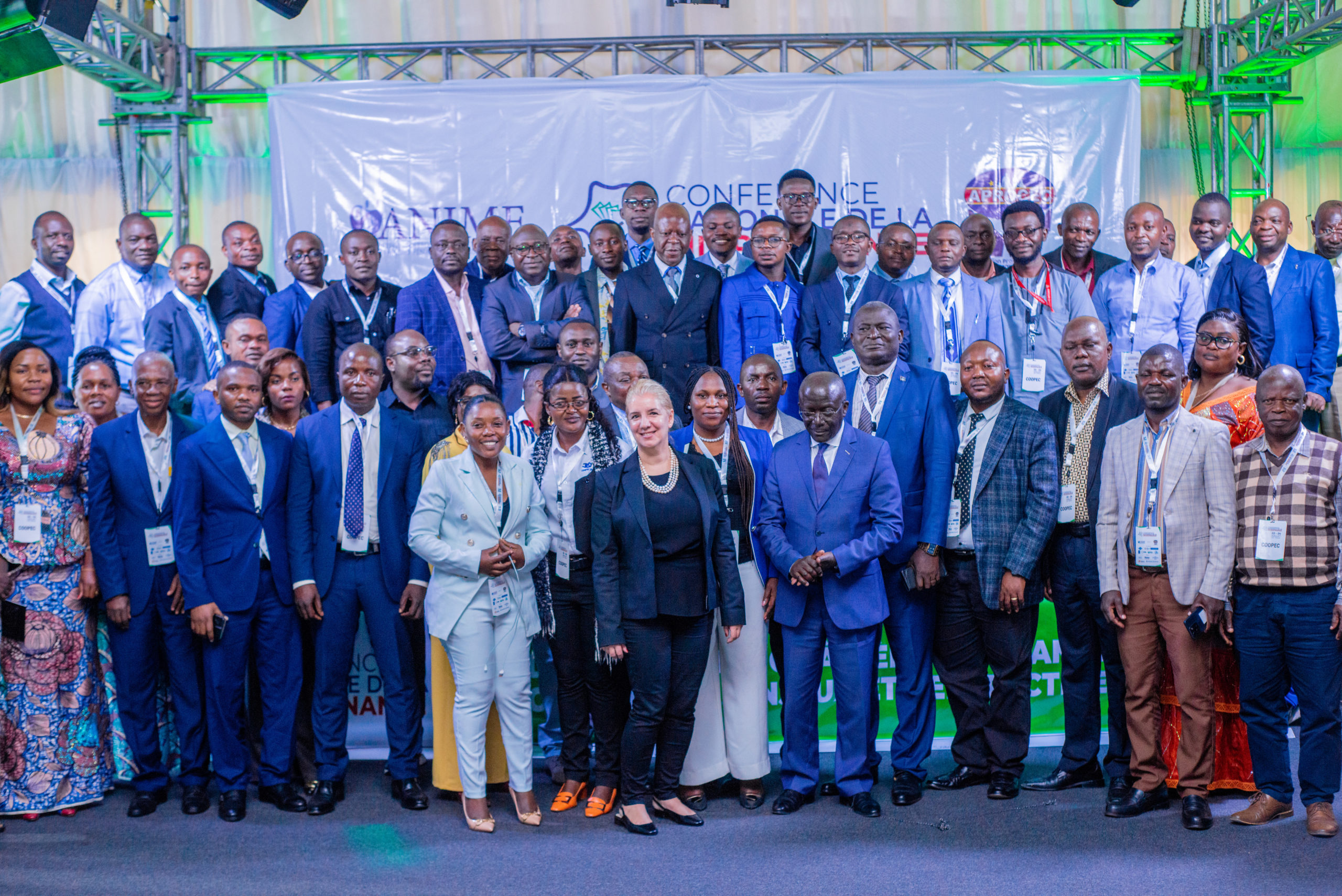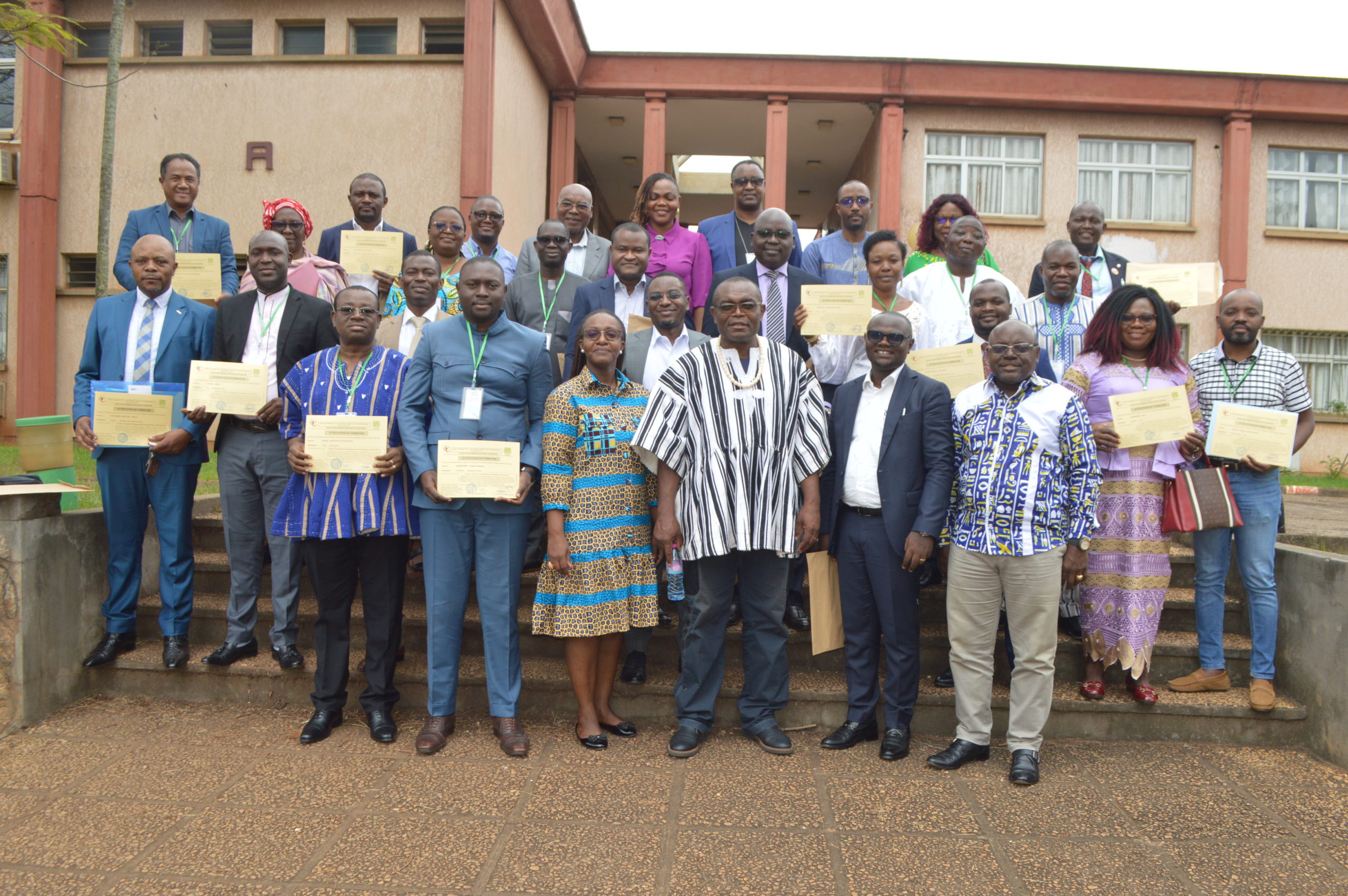

Extreme climatic and meteorological events linked to climate change or its impact on natural resources can have direct effects on the real economy: these are physical risks. They can cause major operational disruptions in businesses and/or damage to exposed households and thus threaten their ability to repay their debt, which then impacts the financial sector.
It is in this regard that since 2017, Fondation Terre Solitaire (FTS) and MAIN network have been thinking about the role that microfinance could play in Africa in the context of climate change. During the 4th edition of the African Microfinance Week (AMW, Ouagadougou – October 2019), MAIN organized a workshop with SIDI on the links to be established between microfinance and EST. Following these discussions, MAIN included in its strategy (2020-2023), the promotion of EST, which constitutes the main component of this project.
After three years of implementation of the project, it is important for MAIN to follow up with its members to ensure the positive impact of the project, not only on microfinance institutions, but also and above all at the level of the final beneficiaries of the project.

That is why on the sidelines of the National Microfinance Conference in DRC, MAIN had an interview with Henry MUZALIWA HABIMANA (HMH), Manager of COOPEC AKIBA YETU based in Goma.
Let’s follow the discussions between MAIN and the Manager of Coopec Akiba Yetu.
MAIN :Hello Manager. Could you introduce yourself and briefly present your institutionplease?
HMH : Hello MAIN . I am Henry MUZALIWA HABIMANA, Manager of COOPEC AKIBA YETU and contact person of (APROCEC) in North Kivu. COOPEC AKIBA YETU is a microfinance cooperative operating in Goma in the province of North Kivu since 2008. It is approved by the Central Bank with a total balance sheet of USD 6,200,000 with an outstanding credit of USD 4,500,000 as at June 30th, 2024.
MAIN : Thank youManager. Can you tell us what the training on Ecological and Social Transition (EST) that you followed at UCAC alongside your Master’s program brought you?
HMH :
Thank you very much MAIN. I glorify God for meeting with MAIN and I congratulate MAIN for building capacity of practitioners in the microfinance sector and particularly for this opportunity that was given to me to attend the training on Master in management of microfinance institutions. As for the training, personally I put into practices the knowledge that I received. This allowed me to set up two green products. The product that was developed specifically after the training is called “Jiko Bora” in Swahili, which means “Healthy cooking” in English. Jiko Bora is a financial and non-financial green product that helps fight against global warming, which helps protect the environment. It is a product developed just after the training. It consists of mobilizing the population of Goma and North Kivu to abandon the use of firewood and ember fires and replace them with Liquefied Petroleum Gas (LPG). It is a product that works very well and the institution earns a lot from this product and also draws a lot of advantage. For this I say thank you to MAIN Network
MAIN :Thank you very much Manager. Following this product that you developed, were you able to mobilize or raise awareness among your members about this new product? what was your members’ appreciation about this new product that you had put on the market because you had, instead of using ember fires, made them aware of the use of butane gas.
HMH : I think that you yourself have followed the video that we showed on the occasion of the National Microfinance Conference in DRC. COOPEC AKIBA YETU members appreciate this product very much, which allows them to save money right away, not only the bag of embers is very expensive compared to the use of LPG, but also LPG provides a cooking method that is very clean. This is why the trend is to move from cooking with embers to cooking with LPG. This significantly reduces their expenses. Before the training, we financed the start of the embers, but since then we no longer finance them. We finance the LPG trade and this is very important and appreciated by all our members at COOPEC AKIBA YETU. Today, we have more than 300 credits up to date. We glorify God for this and it brings us a strong clientele and the members understand that COOPEC AKIBA YETU is not stuck with its traditional products. We innovate with this new product and it contributes to the protection of our Virunga National Park and Kahuzi-Biega National Park which are close to Goma.
MAIN :Thank you Manager. Your final words
HMH : I wanted to invite all those who follow MAIN training courses to always put them into practices. There is a lot to gain. For example, COOPEC AKIBA YETU when we set up this product it attracted a lot of partners, I am talking about UNDP, through UNCDF project which granted us subsidies for the Jiko Bora product. UNDP itself granted us another subsidy through Project“Actif 2” which allow us to open a new branch in a very remote area called “Katindo”. I am inviting all MAIN members to put into practices what they learn from training received from the network and this is very important for MFI.
MAIN : Thank you very much MD and see you soon.
From July 22 to 24, 2024, the National Association of Microfinance Institutions and the Professional Association of Savings and Credit Cooperatives organized the third edition of the National Microfinance Conference at Pullman Hotel in Kinshasa. This special moment of exchanges and sharing of experiences among microfinance stakeholders, Government, and various partners to raise awareness about the role and place of microfinance in the inclusive development of the country, was supported by the World Bank through its project ≠TRANSFORME. The main theme of the conference was “Microfinance in the Era of Climate Change: Challenges and Perspectives,” and it brought together more than 200 participants from the inclusive finance sector, state authorities, technical and financial partners, and international experts. Several topics were discussed during the event, including:Financial inclusion in the era of digitalization, Green microfinance as a contribution to fight against climate change, Challenges of viability and sustainability of microfinance institution in the context of climate change, promotion of smart agriculture using ICT,the role of Fintech in improving digital financial service offerings, promotion of financial inclusion through financial education for youth, etc.

On the sideline of the conference , the two professional associations awarded participants who attended the Professional course in Microfinance on “Branch Manager” certificate . Thirty-three (33) recipients received their Professional certificate as “Branch Managers” as part of the training organized by MAIN Network in collaboration with APROCEC and ANIMF. The awarding ceremony was chaired by the Executive Director of MAIN. In his speech, he first presented the objectives of this training, which enable participants to professionally perform the role of Branch Manager by providing them with a comprehensive understanding of the operation of a branch and in-depth expertise on the technical skills inherent to this position. He then introduced the target audience for the training and the conditions for obtaining the certificate and gave a brief overview of the training path through the different training units included in this program . Finally, he urged microfinance institutions to enroll their staff massively in this certified program organized in partnership with the Ecole Supérieure de Banque in Paris. He congratulated the recipients and reminded them of the professionalism they must now demonstrate in performing their duties.
As part of its capacity building program for inclusive finance stakeholders, MAIN network (Microfinance African Institutions Network) organized from August 5 to 24, 2024, a training for MFI executives on “management of microfinance institutions” in partnership with the Catholic University of Central Africa in Cameroon (Yaoundé). The training brought together twenty-seven (27) participants (22 men & 05 women) from 9 countries and 23 microfinance institutions.
The training covered different themes such as governance, social and environmental performance, digitalization, human resources management, MFI accounting, ecological and social transition, ethics, business plan, audit and control, credit management, risk management, management of information systems, regulation, agricultural value chains digitalization, etc. At the end of each module, participants evaluated the course’s content, the way the teacher delivered it and the relevance of the course to their work in their institution. Participants in master 2 (Second year of the training) defended their preliminary draft of dessertation on different issues related to the industry such as the MFIs’ viability, women’s empowerment, digitalization, social and environmental performance management, etc.

At the closing ceremony of this 18th edition, the program coordinator and the Executive Director of MAIN gave instructions to the participants’ dissertations as well as on the topics to be chosen. The Executive Director of MAIN reminded the participants of the need to complete the program within 3 years in accordance with the commitment form signed by their respective managers. He also encouraged participants for their conscientiousness during the three weeks and recommended them to work harder to complete the program in a due course . He ended his speech by announcing that 2025 will be the year of official graduation and urged participants to greatly participate in this solemn event which marks the end of their professional Master’s course in MFI management. The program coordinator Prof. Jean Robert KALA concluded by thanking MAIN, the lecturers , the support staff as well as the participants for their respective contributions for the smooth running of the session . The closing ceremony ended with the handover of certificate to the participants.
A new program that will benefit over 180 million people by 2032 is poised to significantly increase access to the internet and the inclusive use of digitally enabled services and transform the digital landscape in Eastern and Southern Africa.
Digitalization is one of the most potent tools available today to eradicate poverty on a livable planet. Yet, the Eastern and Southern Africa region has the slowest pace of digitalization globally, with only 64 percent of the population covered by high-speed internet, and just 24 percent of the population using the internet as of 2023. To accelerate digitalization, the region needs more integrated digital markets as digitalization thrives on economies of scale and network effects, often expanding across markets and borders.
The Inclusive Digitalization in Eastern and Southern Africa (IDEA) Programis a $2.48 billion financing envelope—financed through the International Development Association* (IDA) and International Bank for Reconstruction and Development (IBRD)— that aims to bring together 15 countries and Regional Economic Communities and address common challenges such as limited internet coverage due to infrastructure gaps, low usage due to high cost of data and devices, limited digital skills, and lack of digital identification needed for online transactions.
“IDEA is a holistic program that will unleash opportunities for hundreds of millions of Africans to actively participate in and contribute to the advancement of the region’s digital economies. This effort underscores the critical importance of public and private sector partnerships in driving sustainable economic growth,” said Victoria Kwakwa, Vice President for the World Bank’s Eastern and Southern Africa region.
IDEA will be implemented in phases over an eight-year period and initially target countries that have less than 50 percent high-speed internet access. Angola, the Democratic Republic of Congo (DRC), and Malawi will participate in the first phase, providing new and enhanced broadband internet access to over 50 million people combined. Additional countries and regional bodies are expected to join in the subsequent phases based on their eligibility and readiness. The Common Market for Eastern and Southern Africa (COMESA) will lead the regional coordination and facilitate the knowledge exchange of experiences and lessons across participating countries.
“The IDEA program will support participating countries and COMESA Member States in enhancing digital infrastructure and skills to foster productive use of digitalization towards economic growth and inclusive societies, thus paving the way towards increased digital services trade and a vibrant regional digital market. Given the rapidly evolving and cross-cutting nature of the sector, COMESA aims to put emphasis on capturing learnings, and results, and sharing practical tools across the region to help countries fully reap the benefits of the digital economy,” said H.E Chileshe Mpundu Kapwepwe, Secretary General of COMESA.
IDEA is structured around three technical pillars focusing on expanding broadband and securing data hosting so people can access low-cost, reliable and quality internet; deploying interoperable digital public infrastructure and digital safeguards needed to promote trusted and safe use of digital technologies and digitally enabled services; and advancing digitally enabled applications, services and overall capabilities, which can promote productive use of digital technologies and potentially have a high impact on economic and social activities. The program specifically seeks to leverage private sector investment and take advantage of regional economies of scale, encourage the promotion of economic opportunities for women and foster gender equality in the digital landscape, as well as maximize climate co-benefits given the region’s exposure to climate change.
A fourth pillar will focus on project management and capacity building to support implementation, knowledge generation and regional coordination. Each pillar offers a range of options, allowing countries to select activities based on their priorities, readiness, underlying enabling environment, and available resources.
IDEA will contribute to sustainable economic growth through long-term cost savings, efficiency, and productivity gains, fueled by greater digital adoption by citizens, businesses, and governments across the region.
*The World Bank’s International Development Association (IDA), established in 1960, helps the world’s low-income countries by providing grants and low to zero-interest loans for projects and programs that boost economic growth, reduce poverty, and improve people’s lives. IDA is one of the largest sources of assistance for its 75 client countries, 39 of which are in Africa. Since 1960, IDA has provided $552 billion to 115 countries. Annual commitments have averaged about $36 billion over the last three years (FY21-FY23), with about 75 percent going to Africa. Learn more online: https://ida.worldbank.org . #IDAworks
About the World Bank Group: The World Bank Group has a bold vision: to create a world free of poverty on a livable planet. In more than 100 countries, the World Bank Group provides financing, advice, and innovative solutions that improve lives by creating jobs, strengthening economic growth, and confronting the most urgent global development challenges. The World Bank Group is one of the largest sources of funding and knowledge for developing countries. It consists of the World Bank, including the International Bank for Reconstruction and Development (IBRD) and the International Development Association (IDA); the International Finance Corporation (IFC); the Multilateral Investment Guarantee Agency (MIGA); and the International Centre for Settlement of Investment Disputes (ICSID).
For more information, please visit:
www.worldbank.org, www.miga.org, and www.ifc.org #IDAworks